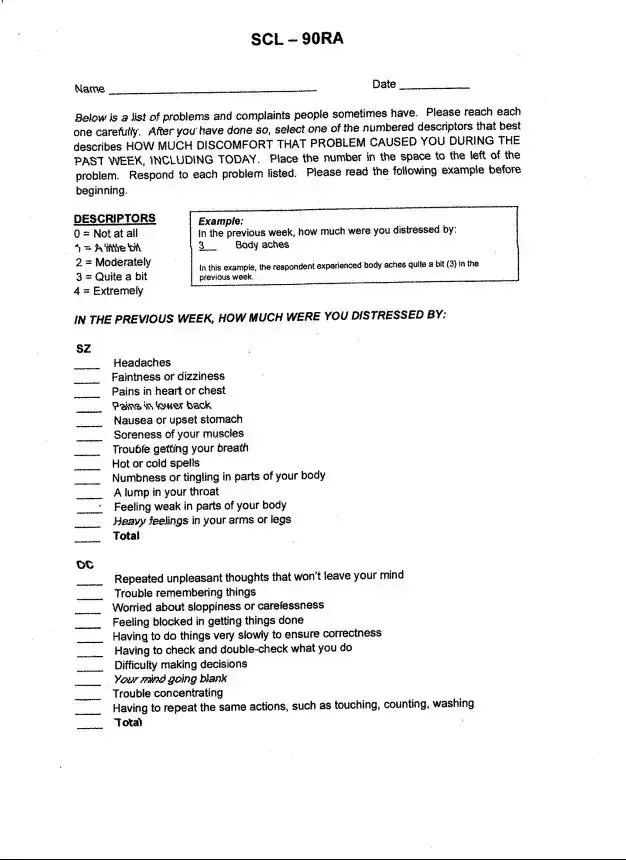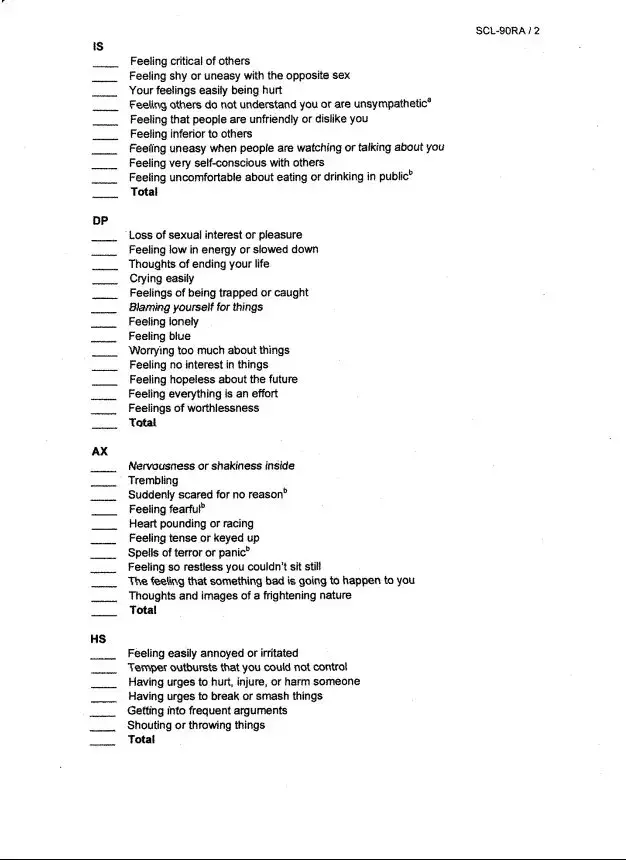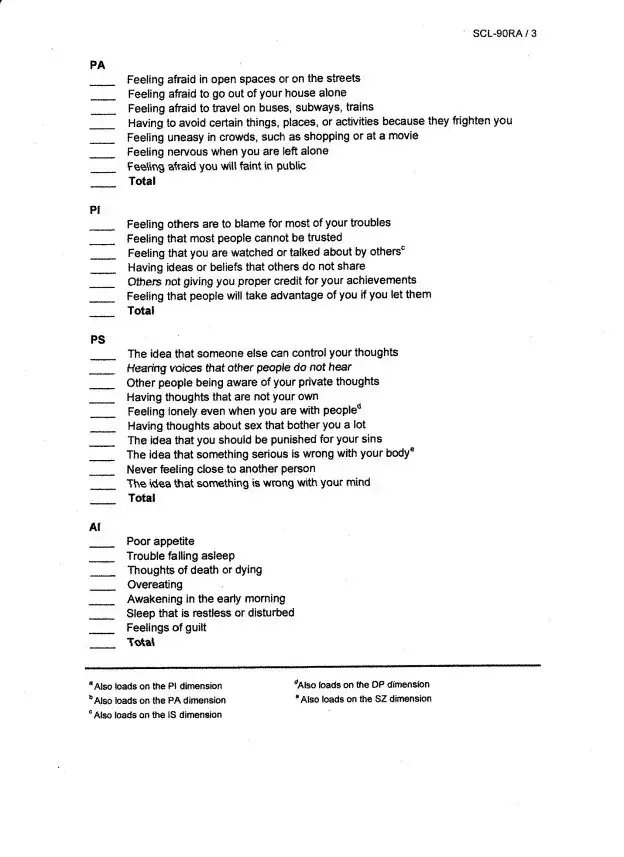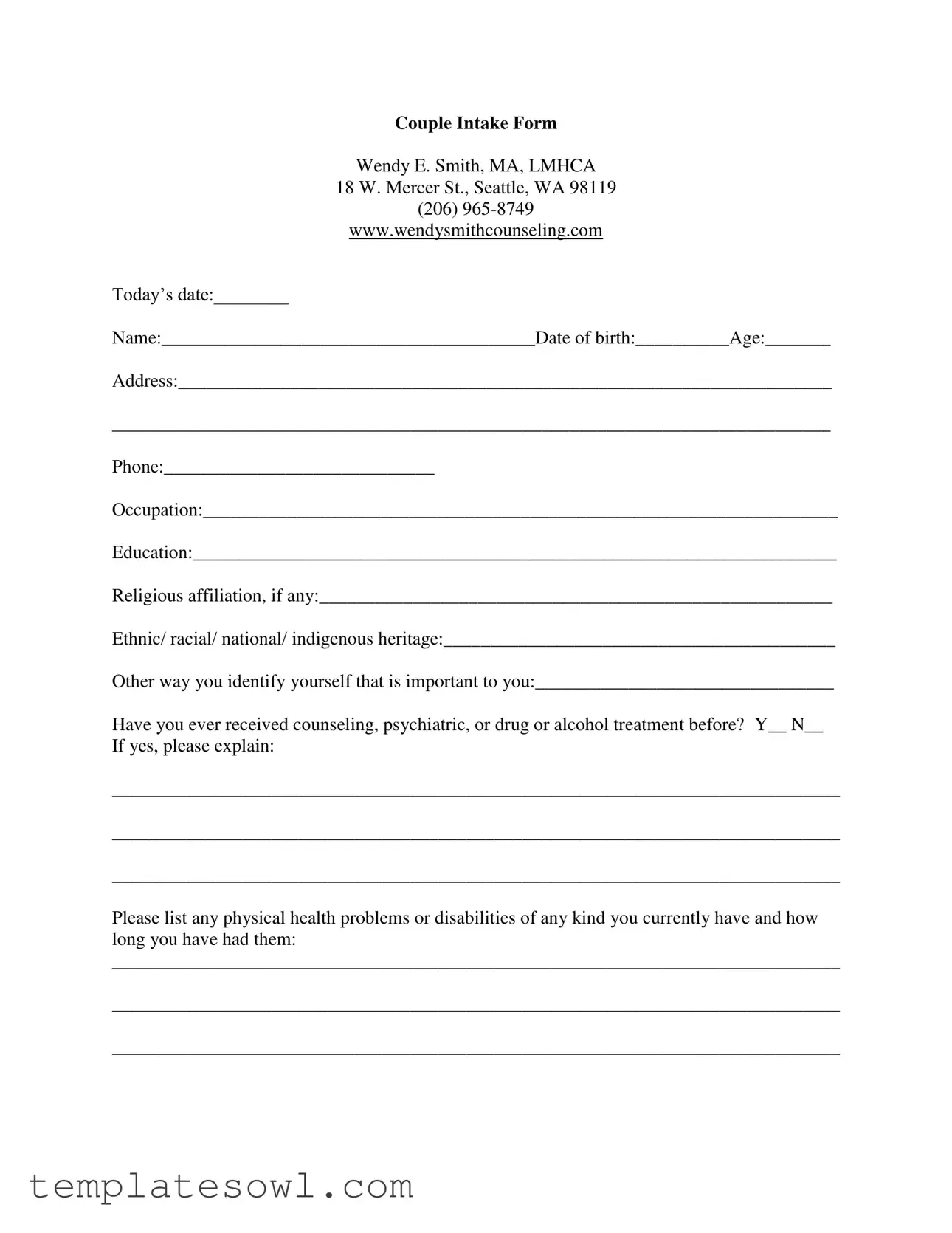Fill Out Your Drug Rehabilitation Admission Form
The Drug Rehabilitation Admission form serves as a vital gateway for individuals seeking help in overcoming substance abuse. Designed to gather comprehensive information, this form allows both the counselor and the client to forge a deeper understanding of the client's background, medical history, and current support system. Key sections include the client's personal details, such as name, date of birth, and contact information, alongside important questions about previous counseling or treatment experiences. Understanding a client's family dynamics plays a significant role in the rehabilitation process, which is why the form includes inquiries about partners, children, and familial relationships. It also prompts individuals to disclose any physical health problems, ensuring that treatment plans are adapted to meet their unique needs. By collecting insights on educational background, marital history, and ethnic heritage, the form supports a holistic approach to care—a critical aspect when addressing the multifaceted nature of addiction. Each piece of information contributes to the broader picture of the individual's life, which ultimately aids in crafting personalized strategies for recovery.
Drug Rehabilitation Admission Example
Couple Intake Form
Wendy E. Smith, MA, LMHCA
18 W. Mercer St., Seattle, WA 98119
(206)
www.wendysmithcounseling.com
Today’s date:________
Name:________________________________________Date of birth:__________Age:_______
Address:______________________________________________________________________
_____________________________________________________________________________
Phone:_____________________________
Occupation:____________________________________________________________________
Education:_____________________________________________________________________
Religious affiliation, if any:_______________________________________________________
Ethnic/ racial/ national/ indigenous heritage:__________________________________________
Other way you identify yourself that is important to you:________________________________
Have you ever received counseling, psychiatric, or drug or alcohol treatment before? Y__ N__ If yes, please explain:
______________________________________________________________________________
______________________________________________________________________________
______________________________________________________________________________
Please list any physical health problems or disabilities of any kind you currently have and how long you have had them:
______________________________________________________________________________
______________________________________________________________________________
______________________________________________________________________________
Name of partner:___________________________________________________________
If living together, how long? _______________ If married, how long? _______________
If there are children from this relationship, please indicate:
Name____________________ Gender____ Age____
Name____________________ Gender____ Age____
Name____________________ Gender____ Age____
Name____________________ Gender____ Age____
If previously married, please indicate: |
|
|
|
Name of Spouse |
Years Married Date Marriage Ended |
Reason |
|
_______________ |
__________ |
_________________ |
_____________________________ |
_______________ |
__________ |
_________________ |
_____________________________ |
If there are children by previous marriage or relationship, please indicate:
Name____________________ Gender____ Age____
Name____________________ Gender____ Age____
Name____________________ Gender____ Age____
Name____________________ Gender____ Age____
If any brothers and sisters, including those deceased, please indicate:
Name |
Age Gender Education Occupation |
Marital Status |
|||
__________ |
___ |
____ |
_______ |
_________ |
___________ |
__________ |
___ |
____ |
_______ |
_________ |
___________ |
__________ |
___ |
____ |
_______ |
_________ |
___________ |
__________ |
___ |
____ |
_______ |
_________ |
___________ |
__________ |
___ |
____ |
_______ |
_________ |
___________ |
__________ |
___ |
____ |
_______ |
_________ |
___________ |
Father’s Name____________________ Birthplace______________
Education________________________ Occupation_____________
Present Age___If deceased, when?_______
Mother’s Name____________________ Birthplace_____________
Education________________________ Occupation_____________
Present Age___If deceased, when?_______
Was either parent married more than once? Please give details:
______________________________________________________________________________
______________________________________________________________________________
______________________________________________________________________________
______________________________________________________________________________
______________________________________________________________________________
______________________________________________________________________________



Please answer each question as completely and accurately as possible. Your information will help me learn about your relationship and help me plan your treatment.
1. What are the things you like most about your relationship?
2. What do you like most about your partner?
3. What are the things you most want to change?
4.How often do you argue? What do you most often argue about?
5. Do your arguments get physical? Verbally abusive? Please detail.
6.Do you feel safe and secure with your partner? Now? In the past? Please detail.
7.In your present relationship, can you ask your partner when you need closeness and
comfort? Please detail. Please rate your level of difficulty in doing so (1 extremely easy
– 10 extremely difficult).
8.Can you think of bonding moments in your relationship when one of you reaches out and the other responds in a way that makes you both feel emotionally connected and secure with each other? Please detail.
9.Who did you go to for comfort when you were young? Could you always count on this person/ these people for comfort? Did this person/ these people ever betray you, or were they unavailable at critical times? What did you learn about comfort and connection from this person/ these people? Please detail.
10. If no one was safe, how did you comfort yourself?
11. Did you ever turn to alcohol, drugs, sex, or material things for comfort?
12.Have there been any particularly traumatic incidents in your previous romantic relationships? Please detail.
13.Were there significant times in your current relationship when you felt your partner was not there for you. Please detail.
14.If it is hard for you to turn to and trust others, to let them close when you really need them, what do you do when life gets too big to handle or when you feel alone?
15.Name two specific things that would make you feel safer and more secure in your present relationship.
16. Anything else about your relationship you wish to share?
Client signature____________________________________________________Date________
Form Characteristics
| Fact Name | Details |
|---|---|
| Purpose of the Form | This form collects essential information for clients seeking drug rehabilitation services. |
| Provider Information | Wendy E. Smith, MA, LMHCA is the licensed provider located in Seattle, WA. |
| Date of Completion | The form requires the current date to be filled out by the client. |
| Personal Identification | Clients must provide their full name, date of birth, and age to identify themselves. |
| Contact Information | A complete address and phone number are necessary for communication purposes. |
| Previous Treatment History | Clients must disclose any prior counseling or treatment received, accompanied by an explanation. |
| Health Concerns | The form includes a section for clients to list any current physical health problems or disabilities. |
| Family Background | Information about the client’s partner and children, as well as details about previous marriages, is requested. |
| Governing Laws | The form adheres to Washington state law regarding patient confidentiality and informed consent. |
Guidelines on Utilizing Drug Rehabilitation Admission
Before diving into the admissions process, it's crucial to carefully complete the Drug Rehabilitation Admission form. Gathering accurate information not only facilitates your entry into the program but also aids the staff in understanding your unique background and treatment needs.
- Write Today’s Date: Begin by filling in the date you are completing the form at the top.
- Provide Your Name: Write your full legal name in the designated section.
- Fill in Date of Birth and Age: Indicate your birth date and age as of today.
- Enter Your Address: List your complete address, including street, city, state, and zip code.
- State Your Phone Number: Provide a contact phone number where you can be reached.
- Occupation: Specify your current job title or occupation.
- Education: Describe your highest level of education achieved.
- Religious Affiliation: If applicable, indicate your religious affiliation.
- Ethnic/Racial/National Identity: Share details about your heritage or identity you find significant.
- Past Counseling and Treatment: Indicate whether you have received any type of counseling, psychiatric, or addiction treatment. If yes, provide a brief explanation.
- Physical Health Issues: List any physical health problems or disabilities you currently have, along with the duration of these issues.
- Partner Information: Write the name of your partner, including information about how long you’ve lived together and if married, the duration of your marriage.
- Children: If applicable, detail the names, genders, and ages of children from your current relationship.
- Previous Marriages: If you were previously married, supply the spouse’s name, the number of years married, date marriage ended, and reason for the end of that marriage.
- Children from Previous Relationships: Note names, genders, and ages of children from prior marriages or relationships.
- Siblings Information: Provide a list of your siblings, including their names, ages, gender, education, occupation, and marital status.
- Parental Information: Write down your father’s and mother’s names along with their birthplaces, education, occupation, present ages, and date of death if applicable.
- Marital History of Parents: Indicate if either parent was married more than once and provide details as required.
What You Should Know About This Form
1. What is the purpose of the Drug Rehabilitation Admission form?
The Drug Rehabilitation Admission form is designed to collect important information from individuals seeking treatment. It helps professionals understand the client’s background, medical history, and current situation, which aids in creating a personalized treatment plan.
2. Who needs to fill out this form?
Anyone seeking admission to a drug rehabilitation program must complete this form. This includes those who have previously received counseling or treatment and are looking for further support.
3. What information is required on the form?
The form requests personal details such as name, date of birth, contact information, occupation, education, and religious affiliation. It also asks about past treatment experiences, physical health issues, and family background to understand the individual’s support system better.
4. How is the information used?
The information gathered will be used to assess the client’s needs and to inform the treatment process. It will help staff in understanding past experiences with addiction and the client's personal and family dynamics, which can significantly affect recovery.
5. Is my information confidential?
Yes, all information provided on the Drug Rehabilitation Admission form is kept confidential. Professionals are required to follow strict privacy laws to ensure that your details are not shared outside the treatment facility without your consent.
6. Can I skip questions I am uncomfortable answering?
While it is encouraged to provide as much information as possible for the benefit of your treatment, you can choose not to answer questions you find uncomfortable. Open communication is vital, and discussing any reservations you have with your counselor may be helpful.
7. What should I do if I don't remember specific details?
If you cannot recall specific information, such as dates or names, it’s better to provide as much as you can. If you are unsure, indicate that you do not remember. Your counselor can assist you in gathering this information during your sessions.
8. How long does it take to complete the admission form?
The time required to fill out the Drug Rehabilitation Admission form can vary. Typically, it takes approximately 30 to 60 minutes, depending on how much information you provide and how thoroughly you wish to answer each question.
Common mistakes
When filling out the Drug Rehabilitation Admission form, individuals often make several mistakes that can impact their treatment process. Understanding these common pitfalls is essential for ensuring accurate and comprehensive information.
One major mistake is not providing complete personal information. People sometimes skip details like their full name, date of birth, or address, thinking they are not crucial. However, this information is vital for establishing identity and ensuring proper communication with treatment providers. Missing or incorrect data can lead to delays or complications in the admission process.
Another frequent error occurs in detailing previous treatment experiences. Some individuals may hastily check "no" when asked if they have received counseling or treatment before. This can be misleading. If someone has a history of substance use treatment, even if unsuccessful, it’s important to share that information. Transparency allows for a more tailored approach to care.
Many people also overlook documenting their physical health issues. They may assume that only their substance use is relevant. Yet, existing health problems can influence treatment decisions. Not indicating these conditions could result in inadequate care or worsening health during rehabilitation.
Additionally, when listing information about relationships and family, participants sometimes provide incomplete details. Whether it's about a partner, children, or previous marriages, every piece of context adds depth to the individual's social environment. Incomplete information can lead to misunderstandings regarding the support system and dynamics that may affect treatment.
Some individuals struggle with discussing their parents' marital history, perhaps due to discomfort or the belief that the past is irrelevant. However, understanding family history can shed light on potential hereditary issues, coping mechanisms, and emotional challenges. Leaving this section blank might lead to missed opportunities for deeper family-based interventions.
Moreover, failing to specify their ethnic or cultural background can hinder the treatment process. Cultural differences can play a significant role in recovery. Providers need this information to build a respectful and effective treatment plan that honors individual backgrounds.
Another common oversight is not indicating a religious affiliation when applicable. For many, spirituality can be a pivotal aspect of recovery. If a person identifies with a particular faith, it can enhance their support system and the overall treatment experience if integrated appropriately.
Lastly, errors can arise from misreading or misunderstanding the questions themselves. Some individuals are so eager to complete the form quickly that they overlook the nuance of what is being asked. Taking time to read each question carefully can prevent wasted effort and promote a more productive intake experience.
By being aware of these mistakes and taking the time to fill out the form accurately, individuals can significantly enhance their chances of receiving effective and personalized care during their rehabilitation journey.
Documents used along the form
When entering a drug rehabilitation program, various forms and documents accompany the Drug Rehabilitation Admission form. These documents help ensure a comprehensive understanding of the individual's background and support needs. Proper completion of these forms is essential for a tailored treatment plan.
- Consent to Treat Form: This document grants permission to healthcare providers to administer treatment. It outlines the risks and benefits, ensuring that clients understand their treatment options before beginning.
- Medical History Form: A detailed record of the client's past and present medical conditions. This form helps providers assess any physical health issues that could impact treatment and recovery.
- Substance Use History Form: This form captures details about the client’s history with drugs or alcohol. Questions usually cover the types of substances used, duration of use, and previous treatment experiences.
- Financial Assessment Form: Used to evaluate a client's financial situation, this document assists rehabilitation centers in determining eligibility for financial aid, insurance coverage, or sliding scale fees.
- Release of Information Form: This form allows the sharing of the client’s information with other healthcare professionals or family members. It ensures that confidentiality is maintained while allowing for integrated care.
- Emergency Contact Form: Clients list individuals to be contacted in case of emergencies. This is crucial for ensuring support is available during treatment and addressing any immediate concerns.
Completing these documents helps create a supportive environment for individuals seeking recovery. Each one plays a vital role in establishing a foundation for effective treatment.
Similar forms
The Drug Rehabilitation Admission form is a comprehensive document used to gather essential information about an individual seeking rehabilitation. It shares similarities with several other forms commonly utilized in healthcare and counseling settings. These forms include:
- Client Intake Form: Similar to the Drug Rehabilitation Admission form, the Client Intake Form gathers personal information, health history, and potential treatment needs. Both forms aim to understand the client's background and context for better service delivery.
- Psychiatric Evaluation Form: This form collects information about the client’s mental health history, symptoms, and medications. Like the Drug Rehabilitation Admission form, it aims to develop a comprehensive view of the client's situation to tailor appropriate treatment plans.
- Medical History Form: The Medical History Form requests details regarding an individual's physical health and previous medical conditions. Both documents gather critical health-related information that can significantly impact treatment decisions.
- Family History Questionnaire: This form focuses on gathering details about the client’s family background, including any history of health issues or substance abuse. Similar to the Drug Rehabilitation Admission form, it helps uncover underlying factors that may affect the client's recovery process.
Dos and Don'ts
When filling out the Drug Rehabilitation Admission form, it's important to approach the process thoughtfully. Here’s a list of things you should and shouldn't do:
- Do complete the form in its entirety. Providing complete information helps the rehabilitation center understand your needs.
- Don't leave any sections blank unless explicitly instructed. Each section is designed to gather important information.
- Do be honest about your health and substance use history. Transparency is key to receiving the best care possible.
- Don't minimize your experiences or struggle. Every story is important and contributes to your personalized treatment plan.
- Do provide accurate contact information. This allows the facility to reach you for any follow-up discussions.
- Don't include irrelevant details that do not pertain to your drug rehabilitation. Focus on your health and relevant relationships.
- Do ask questions if you're unclear about any part of the form. It's okay to seek clarification for better understanding.
- Don't rush through the form. Take your time to ensure that all information you provide is correct.
- Do keep a copy of your completed form for your records. Having this can be valuable for future reference.
Misconceptions
Misconceptions about the Drug Rehabilitation Admission form can lead to confusion and delays in the treatment process. Understanding these misconceptions is crucial for individuals seeking help.
- It asks intrusive personal questions. Many people believe that the form delves too deeply into personal matters. However, these questions are designed to provide a comprehensive understanding of the individual's background to tailor the treatment effectively.
- You can skip questions if you feel uncomfortable. Some think they can leave out information. While individuals can choose not to answer, complete information is essential for effective treatment planning.
- Only addiction history is relevant. There is a belief that only drug or alcohol use history matters. In reality, mental health, physical health, and family background are also significant factors in the treatment process.
- The form is only for those seeking intensive rehab. Many assume the form is applicable only for those who require in-patient treatment. It is actually useful for anyone exploring options for recovery, including outpatient services.
- Submitting the form guarantees admission. People often think filling out the form automatically secures a spot in the program. Admission depends on several factors, including availability and individual needs.
- Information will be shared without consent. Some fear that their personal information will be disclosed. In fact, confidentiality is a fundamental aspect of the treatment process, and details are shared only with consent or as legally required.
- It's a one-time form. There is a misconception that the admission form is the only paperwork required. Additional assessments may be necessary as part of the ongoing treatment evaluation.
- The form is not relevant for family members. Some believe that it only pertains to the individual seeking help. However, including family background can provide insight into support systems and potential issues that may affect treatment.
- The form can be filled out in a short time. It’s often thought that the form can be completed quickly. In reality, individuals should prepare to dedicate significant time to reflect on their history and experiences.
- Doctors or therapists fill it out for you. Many think that a healthcare professional completes the form on behalf of the individual. The form is intended to be filled out by the person seeking help to ensure authenticity and accuracy in the information provided.
Key takeaways
Filling out the Drug Rehabilitation Admission form is a crucial step towards obtaining the support needed for recovery. Here are six key takeaways to consider:
- Be thorough and accurate. Providing complete and precise information helps ensure that the treatment team understands your situation and can offer the best possible care.
- Past experiences matter. When asked if you've received counseling or treatment before, a clear explanation is essential. This history can significantly inform your current treatment plan.
- Health information is important. Take time to list any physical health issues or disabilities you currently face. This information helps the medical professionals accommodate your needs during treatment.
- Family dynamics affect recovery. The form asks about your partner and children. Understanding your family situation can aid in creating a supportive environment for your recovery.
- Consider your background. Sharing details about your ethnic, racial, or cultural heritage allows the treatment team to approach your care with sensitivity and respect to your identity.
- Communication is key. If you have questions about any section of the form, do not hesitate to ask for assistance. Clear communication will facilitate a smoother admission process.
Browse Other Templates
Huntington Bank Direct Deposit - Join the ACH program to eliminate check handling, saving time and providing quicker access to your funds.
Payvor - The form can be photocopied if needed for future use.
